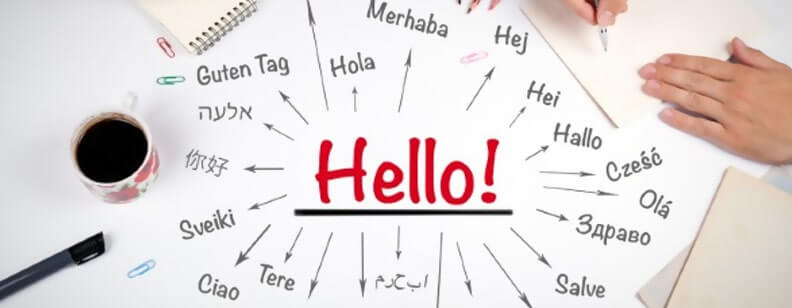
In this article, we will look at some challenges that translators go through or have to overcome when translating from one language to another. Just like in any other line of work, translators have their fair share of challenges that most people do not understand about. I hear many people say that translation must be one of the easiest jobs to do because as long as you understand the languages you have to work with then it’s as easy as ABC when working on them, not knowing that translation entails so much more than just an understanding of languages. If you are not a translator nor ever worked on a translation job, then you need to understand that translation is so much more than just being bilingual, it is all about interpretation and being able to transcribe a message suitably, according to its purpose and be able to make it make sense to an audience without compromising on the original meaning and context. It entails being able to include and take into consideration the language, social and cultural aspects. With that being said it needs a very talented, skill full, professional with years experience to tackle a translation project and deliver it successfully and accurately. Also, it’s good to note that even being a professional is not enough because chances are you will meet hurdles along the way as you work along with a project and that’s what we will look at.
What Are The Most Common Challenges Faced By Translators?
- language structure.
- If you count how many languages there are in the world, then you will eventually get tired and stop along the way. There are over 5000 languages existing in the world as I write this, and not to mention the different dialects that exist within all these languages. Ever listened to someone else speaking their language and realized how unique, original and different it is? That’s exactly how translators see them too. Each language is a prism and has its own complex way of functioning Idioms, expressions, compound words, false friends, even onomatopoeic expressions. These different aspects represent the uniqueness and difference of different languages and more times than not usually cause a communication barrier.
- A good example would be an interesting poem that follows or the set rules and guidelines of a poem from the rhymes and number of lines in a stanza in Portuguese would mean a different thing when translated to another language like French. The poem eventually loses meaning and context and ends up being something different from a different meaning and context. This, especially within the business and marketing environments, can be potentially dangerous. This is a challenge that translators have to face every now and again, which proves to be very hectic to work around. With literal translation, it can prove very challenging if you come across languages like Arabic, read from right to left unlike most languages in the world. It shows just how complex the way of functioning of each language is, and how difficult it can be for someone whose native language is different to learn and even translate Arabic.
- With such languages, you might end up with a case of ambiguity where certain words, expressions or sentences may have different meanings that might alter the original context of a content which may later cause wrong interpretations and misunderstandings. Translators mostly have a hard time translating idiomatic expressions from one language to another because certain expressions rarely make sense when in their original language, so now try to imagine having to translate those to another language. It becomes hard when one has to deal with such expressions and still have it make perfect sense. There are also many words in each language with no literal equivalent in another language, which can make them hard to translate without altering their exact meaning.
- On the same structural issues, it’s good to note that a lot of languages have different dialects, which usually differ from one place to another. Dialects are specific forms of language spoken in particular regions or social groups. What makes this interesting is how people speaking the same language might speak differently, depending on their dialect. This makes it hard for a translator to translate because the different dialects might bring out different meanings and sounds and thus complicating the translation process even further if the translator only knows one dialect from a specific language. These languages are very hard to deal with because it’s also hard to lean and keep up with such a language without getting confused along the way. This is where having a great understanding of the language is not enough, one has to be an advanced linguist to get expressions, metaphors, jargon, slang and different dialects which is very challenging.
- Translating specific content
- Specific content is the hardest to translate because a translator has to translate specific content like films and novels, which includes translating a whole story, context, world, and environment into a whole new language. It involves creativity to transfer cultural values and traditions and to make them understandable and adapted without altering them. The translator has to remain true to the original piece.
- Cultural factors.
- Cultural factors are a real thing, if not real value for most translators. There is a lot that can go wrong when translating from one language, deeply rooted in its culture to another one that is exactly the same way. Every culture has a way in which it expresses its own messages in a way that is not offensive. Translating that exact message and being able to make sure to another language without losing context is usually a big challenge to many translators. Certain factors come into play when dealing with culture and translation, which a lot of translators wish they could ignore but can’t afford to pay. These factors generate a big potential for misunderstanding; cultural factors are therefore problems challenging, translators in a daily.
- One might end up making a whole new interpretation on a particular message, depending on how his or her culture would relate to it when it’s wrong when compared with the original language. A good example is where certain words considered rude to one culture and overlooked in other cultures. Also, some cultures are rather neutral, some are much more emotional and expressive, which can make communication more difficult to understand. It’s very important to understand the culture of a certain language in order to not make such mistakes.
- This is not the case for all languages, though it is important to look out for languages that have a deep-rooted cult background. This will literally save a translator a tone of work and time.
- Sector expertise.
- Just like any other professional, being a translator includes being very specific to the translation works you are good at. Expertise in a particular field usually comes in handy because it shows that you concentrate on a specific niche and have perfected your skills in that niche. This doesn’t mean that you cannot try out your hand in another niche but it is usually hard to perfect translations in a niche you are not good at because things like jargon come in place and make everything complicated if you don’t understand the particular language jargon for a specific niche. Whether you are dealing with legal documents, marketing documents or websites, it is good to note that they all are different and use different jargon.
- For example, when it comes to market documents one needs to provide a quality translation that cuts across the culture, society of the target consumer of that content. For legal documents, it is even more fastidious to translate from one language to another. You would require specific knowledge in this area, as each country has its own legal system and its own laws: the translator must be able to cope with that and be aware of these differences. As for website translations, one should adopt the literal meaning and not translate word for word.
- As we have seen above, it is very important to note that depending on what kind of translation you are doing and the languages in question; it is always good to make sure you consider all these factors and that you have a clear view and understanding of what you need to do to ensure that the project you are working on is accurate for your audience. You should make sure you take all these factors into consideration so you can provide an efficient and successful translation, without misrepresenting the initial core message.








Comment (1)
Buy Real Facebook Fanpage Likes
February 3, 2021I always was concerned in this topic and still am, thanks for putting up.
Comments are closed.